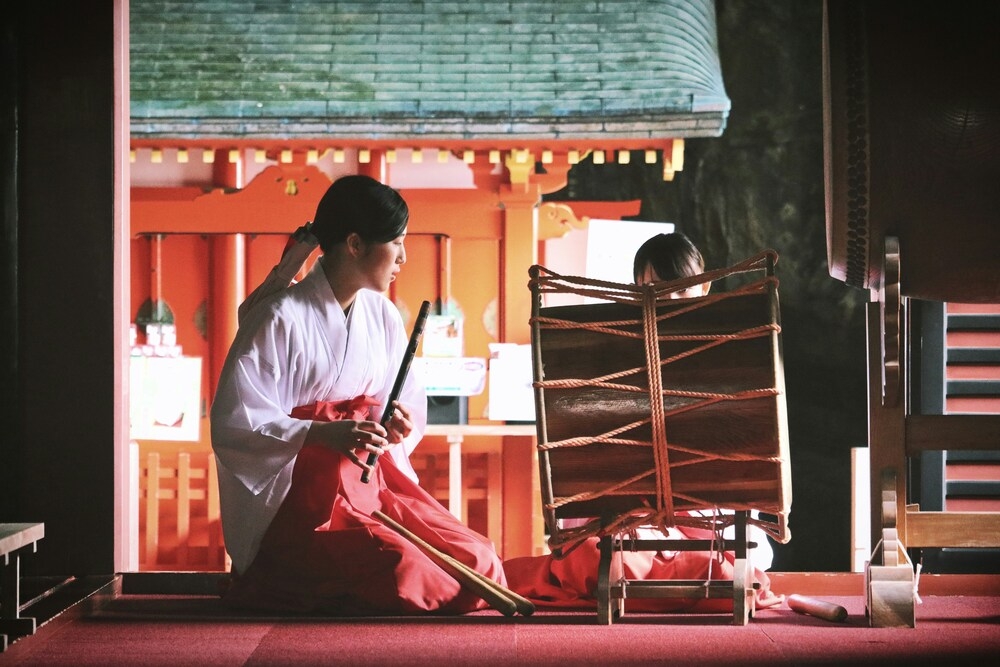Non Copyright Music Japan
Dive into the heart of Japan's musical revolution with our article on non-copyright music. Discover how artists are breaking traditional boundaries, fostering global collaborations, and shaping the future of music sharing. This is a must-read for anyone intrigued by the intersection of culture, innovation, and freedom in the digital age. Ready to explore a world where music transcends copyright? Join us on this fascinating journey.
There's more music!
That's only the tip of the iceberg. We have many more songs, all available with our lifetime licenses:
Why you should purchase from us
Discover the simplest and most cost-effective way to secure a lifetime license – pay once and never worry about account creation or password hassles again! Our licenses are your ticket to the best music, valid for any project, forever.
Get your license now!Use our music on...
Music Plans
Pay once, use for a lifetime
You’ll never have to worry again about copyrights or claims.
Starter
Suited for personal projects and social media (Youtube not included)
$49 / forever
Buy plan- Personal projects
- Social Media
- Clients work
- Online Advertising
- TV, Cinema and Radio
Personal
Most popular
Ideal for Youtube. apps, podcast and gameplays. Unlimited downloads and channels.
$99 / forever
Buy plan- Social Media
- Youtube & Streaming
- Apps & Videogames
- Clients work
- Online Advertising
- TV, Cinema and Radio
Business
Ideal if you're a freelancer or a business. All covered, unlimited downloads and channels
$199 / forever
Buy plan- Any Possible Use Case
- Clients work
- Online Advertising
- TV, Cinema and Radio
👉No need to create an account
👉A lifetime license, forever
👉No more ‘clearing’ channels
We currently offer 241 songs from 30 different genres
Testimonials
Don't take our word for it
“I was skeptical at first but Legis Music has exceeded my expectations. Their music library is diverse and constantly updated, making it easy to find the perfect track for any project. Plus, the peace of mind that comes with that royalty-free license is priceless.”

“@legismusic has made my life as a video editor so much easier. The lifetime license is a no-brainer and the fact that I don’t have to worry about clearing channels or getting copyright strikes is a huge weight off my shoulders. The affordable cost and extensive music library make it the go-to source for all my music needs.”

“As a podcast creator, finding the right music to complement my content can be a challenge, but Legis Music has made it so easy. Their lifetime licenses are affordable and the fact that I can use the music on Spotify and Apple Music is a huge relief. A no-brainer for any podcaster.”

“I was blown away by the value offered by Legis Music's lifetime royalty-free licenses. The cost is incredibly affordable and having the peace of mind to use the music for my clients without worrying about copyright strikes is priceless. I highly recommend this to anyone in need of music for their projects.”

“It was important for me to find a cost-effective solution for my company’s music needs. Legis Music’s business plan was the perfect fit and the lifetime licenses have been a game-changer. We can now use the music for all of our projects without any worries about copyright strikes. Highly recommend to any business in need of music.”

“The quality of the music is top-notch, and the licensing terms are crystal clear, saving me from any copyright hassles.”

“Legis Music has improved the way I create content. The selection of royalty-free music is great and the quality is unbeatable. I can now add the perfect sound to my videos without any stress or added costs. Highly recommended!”

“I've been using Legis Music for my YouTube channel for the past few months, and I couldn't be happier with the service.”

“As a video game creator, having access to high-quality music for my games is crucial. @legismusic lifetime licenses are a steal and the fact that I don’t have to worry about any type of copyrights in the future is a huge relief. The extensive library makes it easy to find the perfect tracks for my games.”

“The audio quality is excellent, and I've never experienced any copyright issues since using their music. The licensing terms are transparent, which is essential for content creators like myself.”

“As a freelance producer, I need to keep costs down and Legis Music has been a huge help for me. The user-friendly platform and affordable pricing make it easy for me to access top-notch music for my clients. Anyone in need of royalty-free music should give it a shot.”

Key Takeaways
- Non-copyright music is emerging as a popular alternative to restrictive copyright laws, facilitating the distribution and consumption of music.
- Copyright laws in Japan have evolved since the Meiji Restoration, influenced by Western legal concepts. and adapted to technological and social changes.
- Protection lasts 70 years after the death of the author, with limited exceptions. Unprotected music offers a way around these restrictions.
- Online platforms such as SoundCloud, Bandcamp, YouTube and Niconico play a crucial role in the distribution of this music, supported by independent artists and labels.
- It is essential to understand the licenses under which it is produced. distributes unprotected music, including attribution requirements and restrictions on commercial use.
- Non-copyrighted music offers artists greater visibility and collaboration opportunities, although it presents challenges in monetization and protection of works.
- Non-copyrighted music Copyright in Japan has a global impact, promoting international collaborations and innovation in the music industry.
- Technological advances, possible legal reforms and cultural changes towards music ownership and distribution will mark the future development of this movement.
The landscape of copyright laws in Japan presents a fascinating backdrop against which the phenomenon of non-copyright music flourishes.
This emergence is not just a legal or cultural curiosity; it represents a significant shift in how music is created, distributed, and consumed within one of the world’s most dynamic cultural powerhouses.
The concept of non-copyright music, while not unique to Japan, takes on particular nuances within its legal and cultural context.
Japan’s copyright laws are designed to protect creators and ensure they receive compensation for their work.
However, these laws also create challenges for artists and consumers seeking to share music freely.
In response, non-copyright music has emerged as a popular alternative, offering a way to circumvent traditional copyright restrictions.
This music is made freely available by its creators, often under licenses that allow for free distribution, modification, and commercial use, provided the original creators are credited.
The rising popularity of non-copyright music in Japan can be attributed to several factors, including the ease of distribution through digital platforms, changing attitudes towards copyright and ownership, and the innovative ways Japanese artists and consumers engage with music.

Historical background
To fully appreciate the significance of non-copyright music in Japan, it is essential to understand the historical evolution of copyright laws in the country and the deep-rooted significance of music in Japanese culture.
Japan’s copyright system has undergone significant transformations since its inception, reflecting broader changes in society, technology, and the global legal landscape.
Historically, Japanese music has always been an integral part of the country’s cultural expression, from the ancient court music of gagaku to the contemporary J-Pop phenomenon.
The traditional view of music in Japan is deeply communal and participatory, with less emphasis on individual ownership and more on the collective experience.
This cultural perspective has influenced attitudes towards music copyright, with many people seeing music as a shared cultural treasure rather than a commodity to be strictly controlled.
The modern copyright laws in Japan were significantly influenced by Western legal concepts introduced during the Meiji Restoration in the late 19th century.
As Japan opened up to the world, it adopted many Western copyright principles, creating a legal framework that sought to balance the rights of creators with the public’s interest in accessing cultural works.
Over the years, these laws have been updated to address new challenges posed by digital technology and the global internet, leading to a complex legal environment for music copyright.
This historical and cultural background sets the stage for the emergence of non-copyright music as an important cultural phenomenon in Japan.
By offering an alternative to the traditional copyright model, non-copyright music taps into Japan’s rich musical heritage while addressing the contemporary needs of artists and audiences in the digital age.
Understanding copyright in Japan
Copyright law in Japan is governed by the Copyright Act, which aims to protect the rights of creators while promoting the dissemination of culture.
The Japanese Copyright Act mirrors many international standards, especially those outlined in agreements like the Berne Convention, to which Japan is a signatory.
Understanding the nuances of this law is crucial for navigating the complex terrain of music production and distribution in Japan.
The basics of copyright law in Japan
Under Japanese law, copyright automatically vests in the creator of a work at the moment of its creation.
For music, this includes both the composition and the lyrics, granting the copyright holder exclusive rights to use, reproduce, distribute, and adapt the work.
Copyright protection lasts for 70 years after the death of the author, ensuring that the rights can be inherited by the creator’s estate.
Implications for music
These protections mean that unauthorized use of copyrighted music can lead to legal consequences, including penalties and fines.
Music producers, distributors, and consumers must navigate these laws carefully, particularly in an era where digital distribution can easily cross legal boundaries.
Exceptions and limitations
Japan’s Copyright Act includes several exceptions and limitations, such as fair use, which allows for the use of copyrighted works without permission under specific circumstances.
However, these exceptions are narrowly defined, and the concept of fair use is less flexible than in some other jurisdictions, such as the United States.
Non-Copyright music in Japan
In response to the constraints imposed by copyright law, and as a reflection of Japan’s unique cultural and technological landscape, a vibrant scene of non-copyright music has emerged.
This music, often released under Creative Commons licenses or as royalty-free, allows for more freedom in sharing, distributing, and modifying music.
Definition and characteristics
Non-copyright music in Japan is defined by its legal and creative openness.
Creators of non-copyright music often relinquish some or all of their exclusive rights, allowing others to use their works freely, sometimes under certain conditions like attribution.
This music spans all genres, from traditional Japanese instruments to contemporary electronic music, reflecting the diverse interests of the Japanese music community.
Types of non-Copyright music
- Creative Commons Music: Artists release their music under various Creative Commons licenses, specifying how their music can be used. This can range from allowing any type of use with attribution to more restrictive licenses that limit commercial use or derivative works.
- Royalty-Free Music: While not free from copyright, royalty-free music allows for the unlimited use of music after an initial purchase or under specific conditions, without the need for ongoing royalty payments.
- Public Domain: Some artists explicitly place their works in the public domain, removing all copyright restrictions.
This flourishing of non-copyright music in Japan is facilitated by digital platforms and social media, enabling artists to reach a global audience with ease.
It represents a departure from traditional music distribution models, driven by the desire to share music more freely and foster a more collaborative creative culture.
The movement towards non-copyright music in Japan **challenges conventional notions of musical ownership and copyright. **
It highlights a cultural shift towards openness and sharing in the digital age, echoing Japan’s historical emphasis on communal cultural experiences.
This shift is not just reshaping the music industry; it’s also creating new opportunities for artists, creators, and consumers worldwide, fostering innovation and cultural exchange in the process.
Sources of non-Copyright japanese music
The landscape of non-copyright Japanese music is vast and varied, encompassing a wide range of genres and sources.
As artists and creators seek to share their music more freely, several platforms and communities have emerged as key facilitators of this movement.
These sources not only distribute music but also foster collaboration and innovation within the community.
Online platforms and communities
- SoundCloud : A popular platform for independent artists worldwide, SoundCloud hosts a significant number of Japanese creators who release their music under Creative Commons licenses or as free-to-use tracks.
- Bandcamp : Bandcamp is another favorite among indie artists, including those from Japan. It allows artists to sell their music directly to fans and often includes options for non-copyright or royalty-free tracks.
- YouTube : Many artists and creators use YouTube to share their music videos and compositions. Channels dedicated to non-copyright or royalty-free Japanese music provide a vast library for creators looking for background music for videos, podcasts, and other projects.
- Niconico : A Japanese video-sharing platform similar to YouTube, Niconico has a strong community of musicians and creators who share their works, including non-copyright music suitable for various uses.
Independent artists and labels
In addition to these platforms, many independent artists and labels in Japan focus on producing and distributing non-copyright music.
These artists often use social media and personal websites to share their music directly with fans, bypassing traditional copyright restrictions to foster a more direct connection with their audience.
Usage and licensing
While non-copyright music in Japan offers more freedom than traditional copyrighted works, understanding the specifics of usage and licensing is crucial for creators and consumers who wish to use this music legally and ethically.
How to legally use non-copyright music in Japan
Licensing agreements and considerations
For creators looking to distribute their non-copyright music, choosing the right licensing agreement is vital.
This decision will depend on their goals for their music and how they wish it to be used.
Platforms like Creative Commons offer a range of licenses that can be tailored to different needs, from completely open licenses that allow any use of the music to more restrictive options that limit commercial use or derivative works.
Navigating the landscape of non-copyright music in Japan requires a careful balance between the freedom to share and use music and the respect for the creators’ intentions and legal rights.
By understanding and adhering to licensing agreements, both creators and users can contribute to a vibrant and legally sound music ecosystem that benefits everyone involved.
Impact on artists and the music industry
The rise of non-copyright music in Japan has significant implications for artists and the broader music industry, influencing everything from creation to distribution.
This model presents a mix of opportunities and challenges, reshaping traditional notions of music ownership and revenue generation.
Benefits for artists
- Increased visibility: Independent artists, especially those early in their careers, can gain visibility by sharing their music freely. Platforms dedicated to non-copyright music can expose their work to a wider audience.
- Community and collaboration: This approach fosters a sense of community among creators. Artists can collaborate more freely, blending genres and styles without the constraints of traditional copyright barriers.
- Direct fan engagement: By bypassing traditional music industry gatekeepers, artists can engage directly with their audience, building a loyal fan base through personal interaction and direct feedback.
Challenges for artists
- Monetization: While non-copyright music can increase visibility, it also poses challenges for artists looking to monetize their work. Finding a balance between free distribution and generating income requires creative strategies, such as crowdfunding, merchandise sales, or live performances.
- Copyright infringement risks: Even within the non-copyright music community, there’s a risk of infringement, either through unauthorized use of samples or melodies or through misuse of the music by others.
Impact on the traditional music industry
- Disruption: The non-copyright music movement challenges the traditional music industry’s business models, emphasizing free distribution and access over sales and licenses.
- Adaptation: Some segments of the industry have begun to adapt, exploring new revenue models that incorporate the principles of free use while still protecting artists’ rights and providing them with income.
Global influence and collaboration
The phenomenon of non-copyright music in Japan does not exist in isolation; it has a significant global influence and has fostered numerous international collaborations.
This movement reflects a broader shift in the global music industry towards more open and accessible music distribution models.
Influence on the global stage
Japanese non-copyright music has impacted the international music scene, particularly in genres like electronic music, where Japanese artists have gained a reputation for innovation.
The global reach of Japanese culture, including anime and video games, has also played a role in popularizing Japanese music across borders.
The use of Japanese non-copyright music in international projects highlights the global appetite for unique sounds and the growing importance of cross-cultural influences in music production.
International collaborations
The ease of sharing and accessing non-copyright music has enabled unprecedented levels of collaboration between Japanese artists and their counterparts around the world.
These collaborations often blend diverse musical styles and cultural influences, creating new and innovative music that resonates with a global audience.
Platforms like YouTube and SoundCloud facilitate these international collaborations, allowing artists to connect, share projects, and reach global audiences without the need for traditional music industry intermediaries.
The future of non-copyright music in Japan
The future of non-copyright music in Japan looks promising, with potential for further growth and innovation.
However, this future is also contingent on various factors, including technological advancements, legal changes, and shifts in cultural attitudes towards music and copyright.
Trends and future developments
- Technological innovation: Advances in music production and distribution technology will continue to shape the non-copyright music scene. Platforms that leverage artificial intelligence for music creation and recommendation could further democratize music production and discovery.
- Evolving legal frameworks: Changes in copyright law, both in Japan and internationally, could impact the non-copyright music movement. There is a potential for more flexible copyright systems that better accommodate the realities of digital music distribution while still protecting artists’ rights.
- Cultural shifts: As younger generations of artists and fans grow up in a digital, interconnected world, attitudes towards music ownership and copyright are likely to continue evolving. This cultural shift could lead to even greater acceptance and support for non-copyright and freely shared music.
Potential changes in copyright laws and their impact
The possibility of copyright law reform in Japan, influenced by the success and challenges of the non-copyright music movement, could have significant implications.
Legal recognition of alternative licensing models, such as Creative Commons, could provide a more solid foundation for artists to share their work freely while maintaining control over how it is used.
The trajectory of non-copyright music in Japan is an exciting aspect of the country’s cultural landscape, offering insights into the future of global music production and consumption.
As artists, fans, and the industry navigate the challenges and opportunities of this movement, the principles of openness, collaboration, and innovation will likely continue to drive the evolution of music in Japan and beyond.
Conclusion
The exploration of non-copyright music in Japan reveals a dynamic and evolving landscape that challenges traditional notions of music ownership, distribution, and consumption.
This movement, rooted in Japan’s unique cultural and legal contexts, has grown beyond its borders to influence the global music scene and spark new forms of creative collaboration.
The rise of non-copyright music in Japan reflects broader trends in the digital age, **where access and sharing have become paramount. **
The movement underscores a significant shift in how artists create music, how fans engage with it, and how the music industry adapts to these changes.
By embracing open licenses and freely distributed music, Japanese artists are not only gaining wider visibility but also fostering a culture of innovation and community that transcends geographical boundaries.
As we look to the future, it is clear that non-copyright music will continue to play a significant role in Japan’s cultural export and global music innovation.
The ongoing evolution of copyright laws, technological advancements, and shifting cultural attitudes toward music sharing and ownership will further define the trajectory of this movement.
In conclusion, the emergence of non-copyright music in Japan is not just a testament to the country’s rich musical heritage and innovative spirit.
It also serves as a beacon for the global music community, pointing towards a future where music is more accessible, collaborative, and diverse.
As this movement continues to grow, it promises to reshape the landscape of music creation and consumption for generations to come, fostering a world where music freely crosses borders and brings people together.